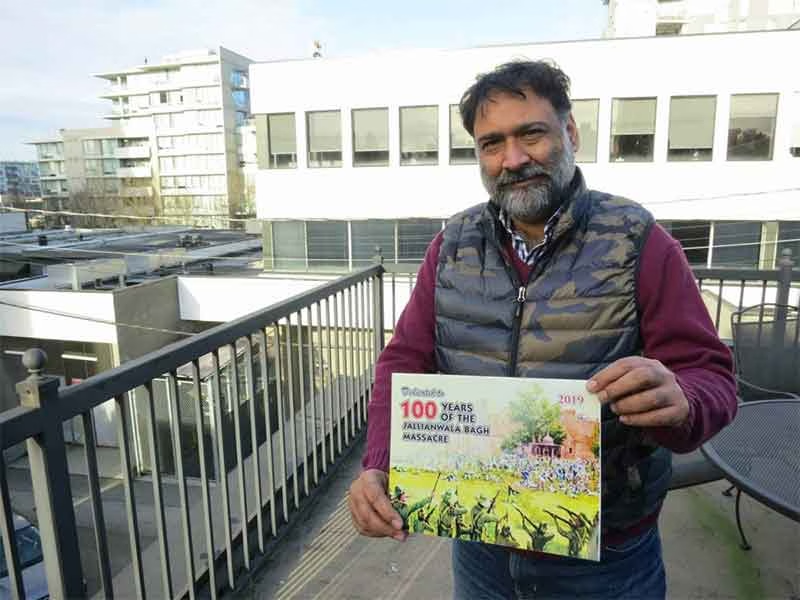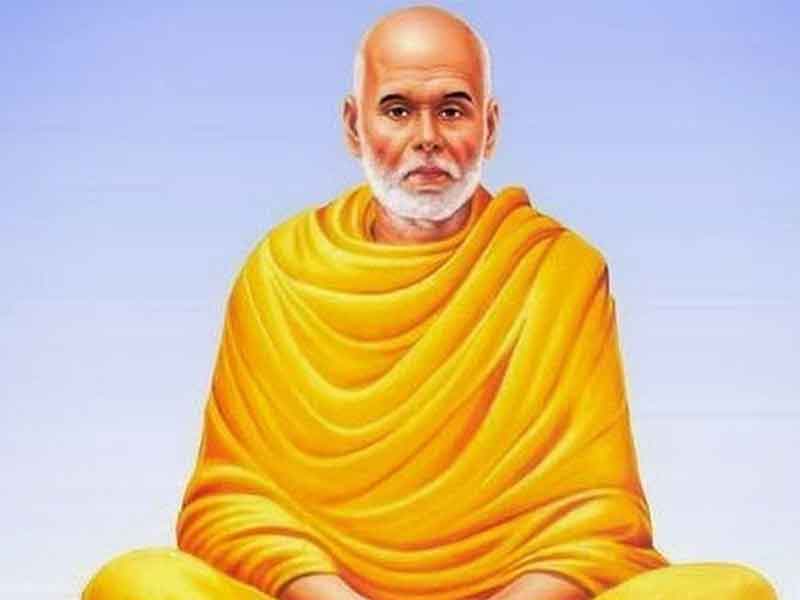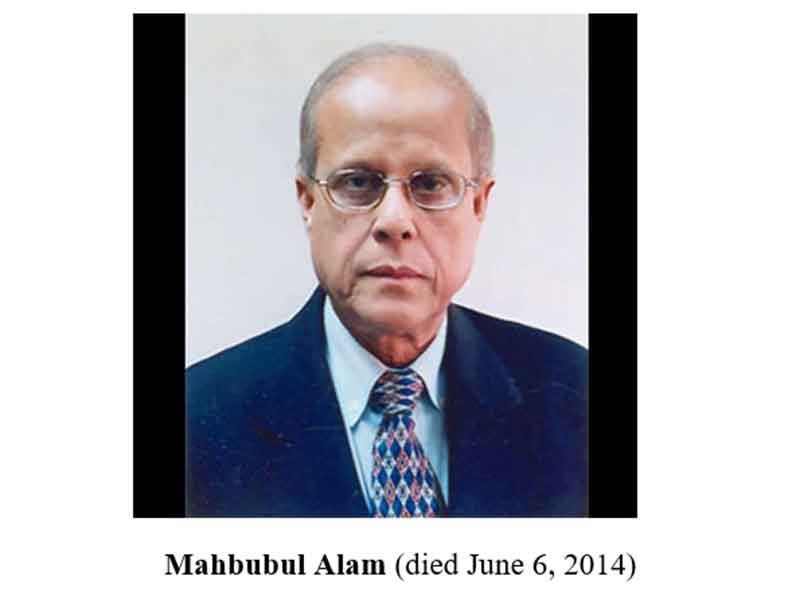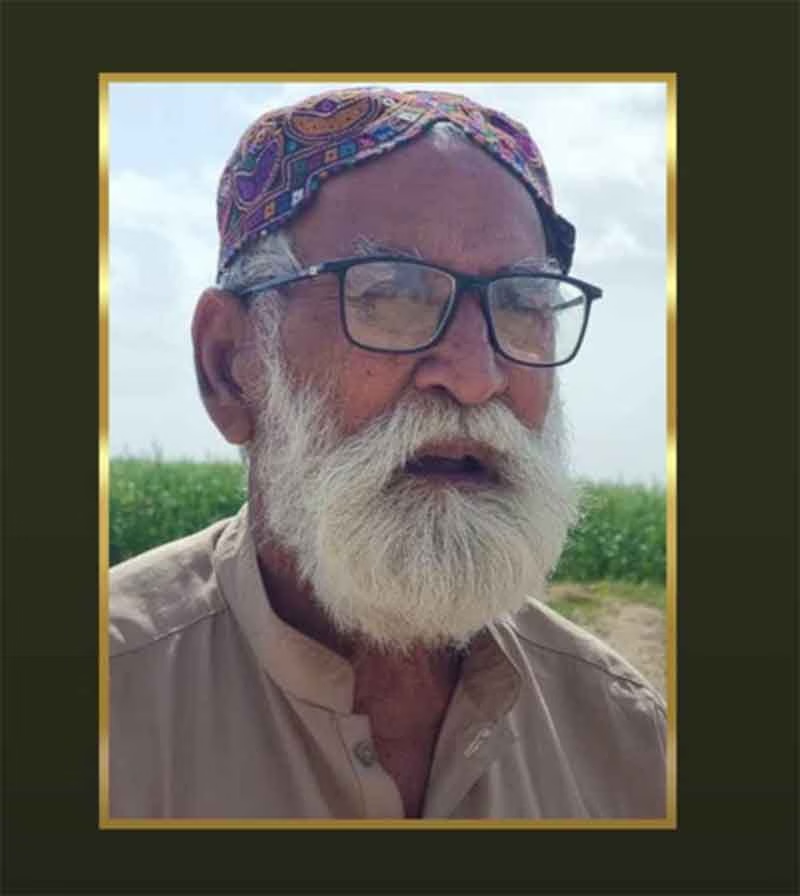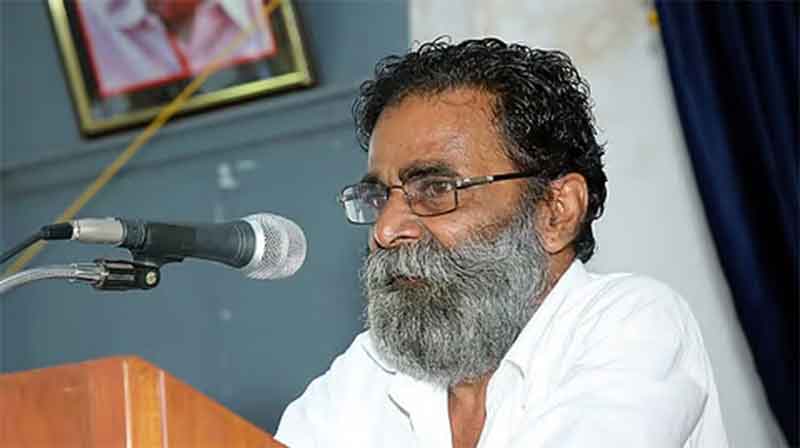
The passing of K. K. Kochu (2 February 1949 – 13 March 2025) marks an immense loss to Kerala’s intellectual and political community. Through his work, he introduced to the complexities of caste, class, and gender — perspectives that went beyond the reductionist frameworks of the time, including the more canonical interpretations of Marxism. In a period when mainstream intellectual and political discourse often sidelined these crucial aspects of Kerala’s reality, Kochu’s approach brought clarity and urgency to the understanding of marginalized voices. His ability to critique and extend these established paradigms made him an indispensable figure in Kerala’s intellectual landscape, and his legacy continues to shape how we think about social justice, equality, and the intersections of caste and class.
In addition to being a powerful and captivating orator, K. K. Kochu was a prolific author whose writings continue to resonate across intellectual and political circles. His widely acclaimed autobiography Dalithan (translated to English by Radhika P. Menon) offers a candid, personal reflection on his life, but it is just one of many notable works he penned. Among his other influential books are The Distance to Buddha, A Lesson in History for Nationalism, Kerala History and Social Formation, The Time Without the Left, and Rebellion and Culture. These works reflect his deep engagement with social, political, and historical issues, each offering unique insights into Kerala’s socio-political landscape and its historical evolution. Kochu’s professional life was intertwined with his activism. He began his career at the Kerala State Road Transport Corporation (KSRTC) as a clerk in 1977, eventually retiring as a senior assistant in 2001. Yet, it was his involvement in political activism that truly defined him. He led several important movements, including the Communist Yuvajana Vedi, the People’s Workers’ Union, and the Manushyavakasha Samithi (Human Rights Committee), all of which fought for workers’ rights, social justice, and human dignity. His contributions to the Seedian organization were equally significant, as he became a member of its Central Committee in 1986 and later served as the editor of its weekly publication, Seedian. Through his leadership and intellectual contributions, Kochu left an indelible mark on Kerala’s political and intellectual spheres, pushing for a more inclusive, equitable society. Kochu’s contributions to society were widely acknowledged, and he was the recipient of numerous prestigious awards throughout his life. In 2021, his extensive body of work was formally recognized when he was awarded the Kerala Sahitya Akademi Award, a testament to the profound impact he had on Kerala’s intellectual and cultural landscape.
K. K. Kochu made immense contributions to the Adivasi and Dalit movements, particularly in their struggles for land rights. He was often caught in the internal conflicts that arise in democratic struggles, particularly those between senior leaders and activists. However, his most significant contribution was his steadfast advocacy for a second round of land reforms and the continued redistribution of agricultural land in Kerala—a stance that was met with resistance from the orthodox left, who viewed it as an untenable critique of the land reforms of the 1970s. These reforms, part of the legacy of Kerala’s first communist government, had excluded Dalit communities from the agricultural land redistribution, limiting it mostly to upper-caste tenants and a portion of the Ezhava community. Agricultural labourers were left with only small parcels of land, ranging from 3 to 10 cents, primarily for hutments, rather than receiving a legitimate share of agricultural land that they had every right to. Despite the differences he encountered on the ground with leaders of movements like the Chenagra or Arippa land struggles in Kerala, Kochu articulated the demand for land rights with both clarity and political acumen. His unwavering stance helped frame land rights not just as a local issue, but as a fundamental question of social justice that needed to be addressed at a broader political level. His work remains pivotal in the ongoing struggle for land rights among marginalized communities in Kerala.
While continuing to be a strong advocate for land struggles, Kochu also introduced more innovative ideas for social upliftment of Dalit communities. Kochu deeply reflected on the need to empower Dalit communities by engaging directly with industries and capitalist agriculture, rather than relying on the state for economic support. This was an unconventional notion when he first introduced it and was not widely embraced at the time. He believed that the marginalized communities should focus on creating capital and increasing communal wealth through enhancing social networks and building social capital. Kochu’s vision was not simply about economic empowerment, but about reshaping the very foundations of how these communities could thrive independently and sustainably in a rapidly changing world. As a visionary and theoretician, Kochu had a clarity of thought on these issues that was not always shared by his collaborators or by activists at large. His approach challenged the more traditional routes, which relied heavily on state intervention or political ideologies that were losing relevance in the post-globalization and post-development world. Kochu saw himself not merely as a follower of established paths but as a provider of intellectual leadership and ideational support. He understood that the political landscape was shifting, and that the old paradigms of resistance were no longer as effective. Instead, his focus was on empowering marginalized communities through self-reliance, economic agency, and a deeper sense of solidarity, offering a more sustainable and forward-thinking path for social change.
K. K. Kochu’s autobiography Dalithan offers a powerful and deeply personal account of his journey as a Dalit intellectual, activist, and political thinker. In this candid narrative, he reflects on his experiences growing up in a marginalized community, his involvement with leftist politics, and his eventual embrace of Ambedkarism. The book delves into his struggles with caste, class, and identity, providing a rare insight into the complexities of navigating both insider and outsider positions within Kerala’s social and political landscape. Reviews of Dalithan praise its raw honesty and critical insights, particularly its exploration of the Dalit experience and its critique of mainstream political movements. The autobiography is not only a personal memoir but also a significant contribution to the discourse on caste, class, and social justice in Kerala. While he was profoundly shaped by Ambedkar’s critique of caste and his call for the liberation of the marginalized, Kochu developed an independent perspective that was firmly rooted in his early Marxist worldview and his critique of Kerala’s socio-political realities. For Kochu, the Ambedkarite perspective went beyond being a theoretical framework derived from Ambedkar’s ideas; it was a lived experience that he viewed as essential to transforming Kerala’s society. This perspective, for him, was not only about addressing the social exclusion of Dalits but also about challenging the historical narratives, political discourses, and cultural formations that had systematically silenced and marginalized entire sections of society. His writings consistently emphasized the need to centre the experiences, struggles, and perspectives of the oppressed in any genuine critique of Kerala’s history, politics, and culture.
With his deep knowledge in Marxist dialectics and method, he was one of the few thinkers who successfully integrated Ambedkar’s critique of caste with Marxist theory, creating a more comprehensive framework for understanding the oppression faced by both Dalits and the working class. His work consistently emphasized the intersectionality of caste and class, arguing that the struggles of marginalized communities must be understood not only in terms of the exploitation they suffered as workers but also in relation to the caste-based discrimination they endured. Kochu was also sharply critical of Kerala’s left-wing leadership for its failure to address the complexities of caste and marginalization within its Marxist discourse. While the older leadership of Kerala Marxism often overlooked the struggles of Dalits and other marginalized groups, Kochu’s Ambedkarite perspective sought to rectify this neglect. His revolutionary writings played a crucial role in challenging the conventional understanding of class struggle, urging it to encompass the fight against caste-based oppression. This expanded framework brought a renewed urgency to the question of social justice, reshaping the discourse on equality and inclusion in Kerala.
Subscribe to Our Newsletter
Get the latest CounterCurrents updates delivered straight to your inbox.
K. K. Kochu’s contributions to intellectual and political discourse were not without their critics, but his profound theoretical insights and unwavering ability to defend his views ensured that his impact was both enduring and transformative. He was not only a philosopher and political thinker but also a historian whose work constitutes a formidable body of literature. His writings continue to serve as a crucial resource, offering future generations a deeper, more nuanced understanding of Kerala’s complexities and the broader social forces shaping the region. K. K. Kochu’s passing leaves an irreplaceable void in Kerala’s intellectual and political spheres, but his legacy will continue to guide us. His work challenges us to critically examine the evolving dynamics of our society and underscores the importance of striving for a more inclusive, equitable, and just world. His absence will be deeply felt, but the lessons and perspectives he imparted will resonate for generations to come.
T T Sreekumar, Ph.D, Professor | Department of Communication, School of Interdisciplinary Studies, Director (i/c), Educational Multimedia Research Center (EMMRC), The English and Foreign Languages University, Hyderabad


